Mississippi Transplant: Shira Muroff
"Having the experience of living in Mississippi has made it impossible for me to ever ignore what is going on in this state, and the South, even if I was to leave Mississippi or the region."
What does it mean to call Mississippi home? Why do people choose to leave or live in this weird, wonderful, and sometimes infuriating place? Today we hear from history educator, public programmer, and Rooted community editor, Shira Muroff.
First things first—what made you want to join the Rooted editorial team?
Being a transplant, I am constantly being asked when I think I’m leaving the state. As much as Mississippi can be a frustrating place, I hate that it’s assumed that it’s not somewhere that new folks would want to put down roots in. Even when things get hard, the thing that’s kept me here is the people who share their stories. So, being a part of the Rooted team gives me the ability to help amplify the stories of folks who both make Mississippi their home, and those for whom Mississippi will always be a part of them.
Where are you from?
I primarily grew up in the suburbs of Los Angeles County—Agoura Hills to be more specific. It is a fairly liberal but also a very white area. Agoura is a place with a lot of public parks, a library with a good children’s section, and a lot of Jewish folks. Growing up as a Jewish kid, it was not an anomaly for more kids in my class to celebrate Chanukah versus Christmas. It was a place where you could reach most things you needed within a seven minute drive (which is still how I choose where to live today).
When did you move to Mississippi and why did you move here?
I moved to Jackson in the summer of 2016, two days after I graduated college. I got a two year fellowship right out of school. I had spent the first year of my life in Columbus, Georgia, so seeing the Southern job listing felt a bit like a chance to explore the region where I had been born.
I expected to be in Mississippi for only the two contracted years, but as my time here went on, I fell in love with the South, Mississippi, and Jackson specifically. I got another job locally when my two years were up, and I’ve been here ever since.
What does “home” mean to you? How does Mississippi fit into that definition?
Home is a place where I feel like I can be myself and where I can find community in even the smallest places. Honestly, I once said I’d only want to live somewhere where I could wear tie dye and Birkenstocks into a bar. (Jackson passed the test.)
Because Mississippi is also the only place I’ve lived as an adult, adulthood, Mississippi, and home are sometimes synonymous for me. I’ve worked in the non-profit and state government worlds since I moved to Jackson, and both organizations had me traveling around the state. Even though I don’t have family in Mississippi, working in those spheres has given me the ability to find someone who’s connected to a friend or coworker of mine no matter where I go in the state. As someone who grew up in a small city, that feeling is always very comforting.
Home is a place where I have traditions, memorable food, people who I can rely on, and timestamps I can depend on as the seasons change throughout the year.
Mississippi has become a place where I know I can pull out a sweater when the ferris wheel hits the fairgrounds, where friends can gather without mosquito bites as winter hits, where spring means pulling out my JXN FLG t-shirt for the parade (and seeing a coating of green pollen on my car), and where I try to find the shadiest place on the grass at the reservoir during the summer.
I also feel very grounded living somewhere where I know where so much of my food comes from (and goes back to). I love purchasing my food from friends (including Sunflower Oven and Fertile Ground Farms) at the farmers market, and then returning my food scraps to Wurmworks compost.
I was lucky that, for a while, I was also living on a block full of people who I became close to. By happenstance, our parking lot became a place to be handed a slice of Detroit style pizza, swing on a communal bench swing, and commiserate about current events.
What do you miss most about the place where you’re from?
Honestly, sometimes what I miss most is a good vegetarian burrito. It’s a common sentiment of mine (ask anyone I know.) Send those good Mississippi veggie burrito recs over to me!
I also miss mountains! I grew up next to Ladyface Mountain, a mountain that looks as if a woman was lying on her back.
Even though health care isn’t perfect anywhere, I do miss living in a place where abortion is legal. And as someone who is not Christian, I do also miss going to medical offices where Bible quotes don’t adorn the walls and the staff don’t always say “have a blessed day.”
I also miss my quick speech and West Coast accent being more the norm. Seven years in, it can get boring to hear “you’re not from here, are you?” when I’m on the phone with someone new.
How have you cultivated community in Mississippi? Who are the people who have made you feel rooted here?
I initially cultivated community by connecting to other groups of Mississippi transplants. Early on, it was easiest to connect to folks who were also adjusting to the state and could share resources. (For example, Who is a doctor who believes in birth control? What are the best yearly events in Jackson?)
Transplants who choose to grow roots in Mississippi have been some of my closest friends here. However, having a community of transplants means that often you are saying goodbye to people. June has traditionally been a time when I know I’ll be losing a piece of my Mississippi puzzle.
More importantly though, as my first year moved along, I got involved in different local organizations. I got to know folks involved in Big House Books and the Pink House Defenders, and that gave me a window into long term work that had been done on the ground in Mississippi. Becoming a part of those groups helped me feel rooted in the state. For a chunk of years before the pandemic, I spent many mornings outside of the Pink House, learning how to escort folks to their healthcare appointments, even when flanks of extremist protestors were yelling at them. For another few years, I also helped run JXN Gumbo events, community crowdfunding events that provided micro-grants for local organizations (such as Growing Up Knowing and Springboard to Opportunities). Meeting a diverse crew of leaders and innovators across the state created a lot of long lasting connections.
In the years since COVID-19 hit, I’ve restricted the number of people who I interact with, so I pulled back from my in-person organizational involvement. Mississippians are understanding though—even when I disappear from local orgs for a while, whenever I run into someone, I receive the warmest hello.
What’s the weirdest question or assumption you’ve encountered about Mississippi (or about you as a Mississippian) by someone who’s never been here?
These aren’t necessarily the weirdest questions, but the statements that have stuck in my side the longest have been “Oh Mississippi, there are a lot of poor people there, right?” and “Mississippi, that’s the state next to Louisiana, right?” As small children are taught, “If you don’t have anything nice, don’t say anything at all.” I shouldn’t have to say that to the two adults in Los Angeles who made those ignorant comments. However, some similar sentiments have also been said by people in other Southern states as well.
How has living in Mississippi affected your identity and your life’s path?
Having the experience of living in Mississippi has made it impossible for me to ever ignore what is going on in this state, and the South, even if I was to leave Mississippi or the region. I care so deeply about the people all over the state, and especially those in Jackson, and I know what happens in Mississippi will quickly spread to other states as well.
Living here has made me more outspoken, and also more critical about things I might have taken for granted (or been unaware of) growing up. I’ve also been so invested in learning about Mississippi history, that I can’t separate our past from what’s going on politically and socially in the state and across the country today. I hope the students at my California high school are learning about some of the many social movements and Black leaders who are native to Mississippi. I wish I hadn’t had to wait to live here to learn about the social movers, innovators, and artists.
What is something that you’ve learned about Mississippi only by living here? In what ways has Mississippi lived up to your expectations?
Living in Mississippi has taught me that the Mississippi Delta is a place with such a rich, complicated past and present. I’ve explored the area, learning about the histories of so many different ethnic and racial groups that have been there for centuries. I’ve also been taken in by the Jewish community of Greenwood for many years of the fall Jewish High Holidays. They brought us in for traditional services, but also for fish fries on their farm.
Hush puppies and fries became a part of my Rosh Hashana (the Jewish New Year), just as much as the traditional apples and honey were.
Mississippi has lived up to my expectations in so many ways—I’ve met the nicest people, eaten the best food, heard the best music, and learned so much. While living somewhere so religious does have its drawbacks, it also means that sometimes you find a community of folks (of various religions) who love to celebrate holidays together and experience each others’ traditions. For a while, a group of us would routinely celebrate Sukkot together, a Jewish fall harvest holiday, collaborating on a fall-themed potluck. Without the space to create our own full sukkah, we covered our back patio with paper chains.
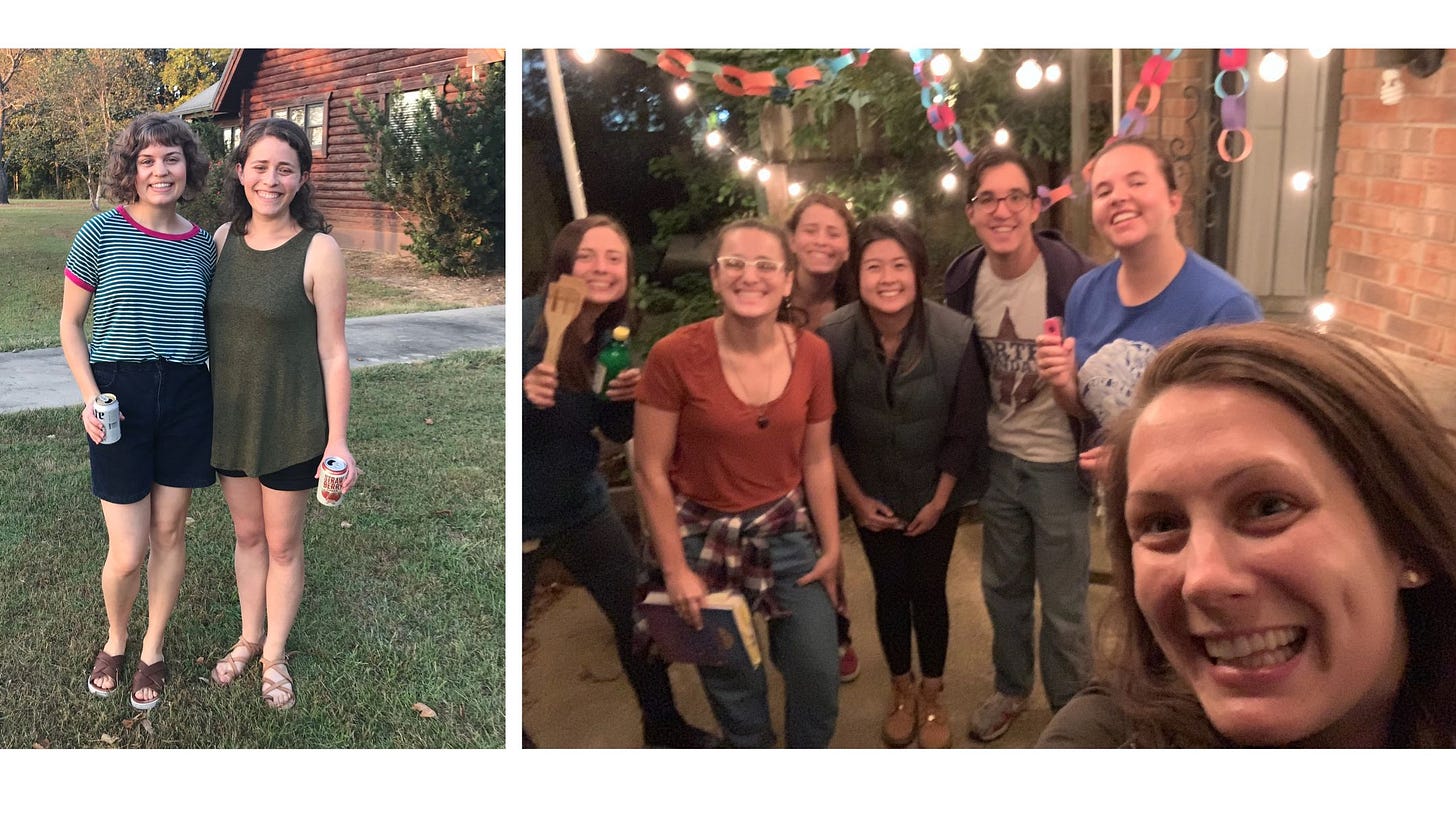
Have you ever thought about moving away? Does a sense of duty keep you rooted here? Do you have a “tipping point”?
Every time that health care and LGBTQ+ rights become more restrictive here, I entertain the thought of moving away. If I didn’t have family in other areas that could be a safe haven if necessary (granted health care needs don’t always wait for a plane flight), I’d be a lot more tempted to move. I also become frustrated when winter cold snaps (among other things) sometimes cause Jackson to lose water for days (or weeks) on end. It’s an untenable way to live, but eventually those spurts come to an end (although I wonder what our water system is ultimately doing to my body).
I do feel a sense of duty to use my privilege to stay and fight through the bureaucracy, instead of leaving the state. Right now I don’t know what my actual tipping point would be, because hateful, restrictive laws are being introduced and passed in so many states across the country.
What do you wish the rest of the country understood about Mississippi?
I wish the rest of the country understood that Black communities here have been fighting for self-determination for a long time. And with bills such as HB 1020 passing this year, trying to take away power from Black-majority Jackson, it hasn’t stopped.
We live in a voting-restricted, gerrymandered state that takes away political power from anyone who threatens traditional political power. So, when people make comments about our state government and how “people elected them into office…,” people outside the state need to understand that not everyone has the time or legal ability to vote here. (And the process for voting by mail is ridiculous—do you know where your neighborhood notary is? I don’t.)
Do you have a favorite Mississippi writer, artist, or musician who you think everyone needs to know about?
I love Adrienne Domnick’s work. I love seeing her work pop up around town, and I especially like her piece of Nina Simone that hangs in Urban Foxes.
If you had one billion dollars to invest in Mississippi, how would you spend your money?
I would love for our state to have early voting, fully funded public education, and abortion access. However, those powers are unfortunately relegated to the legislature.
So, I would spend my money continuing to support the folks leading amazing after-school and summer programming for students across the state (shoutout to the staff at Operation Shoestring and the Literacy Achievement Bonanza). I had so much fun (and gained so many leadership skills) from the experiential education programs I was involved in as a kid, and I’d love to get more resources into the hands of educators already doing that work here (and I’d happily volunteer to teach kids how to make friendship bracelets).
What or who do you want to shamelessly promote? (It can absolutely be a project you’re working on, or something you are involved in.)
Whenever you have softcover books, donate them to Big House Books! They fulfill book wishlists for folks incarcerated in Mississippi. And check out their social media accounts for the specific types of books that folks request throughout the year (and opportunities to volunteer at their weekly Packing Parties). If you don’t live locally, you can donate at https://secure.givelively.org/donate/big-house-books.


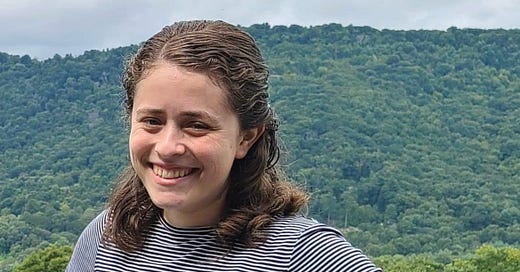

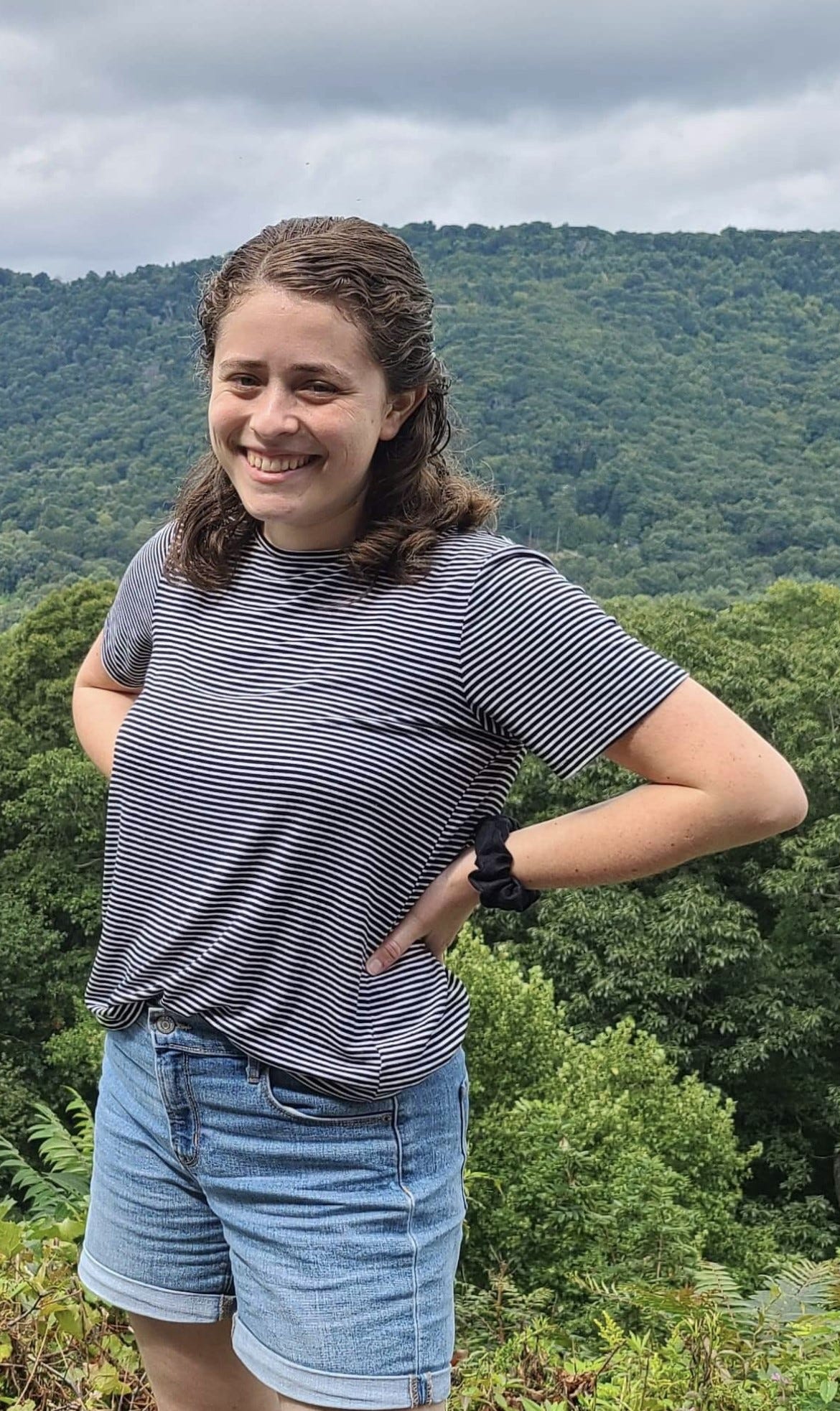
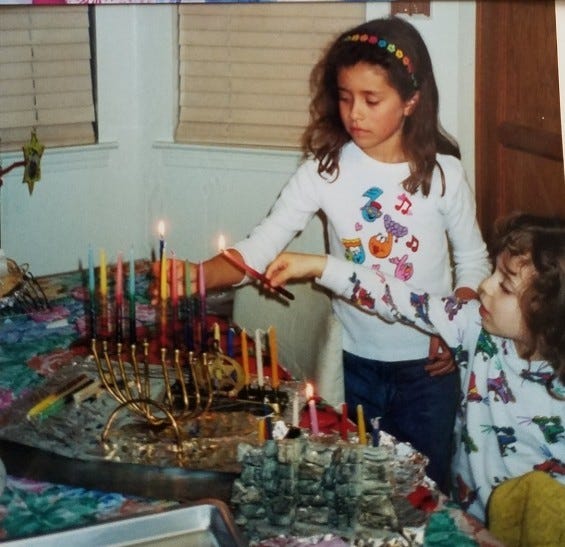
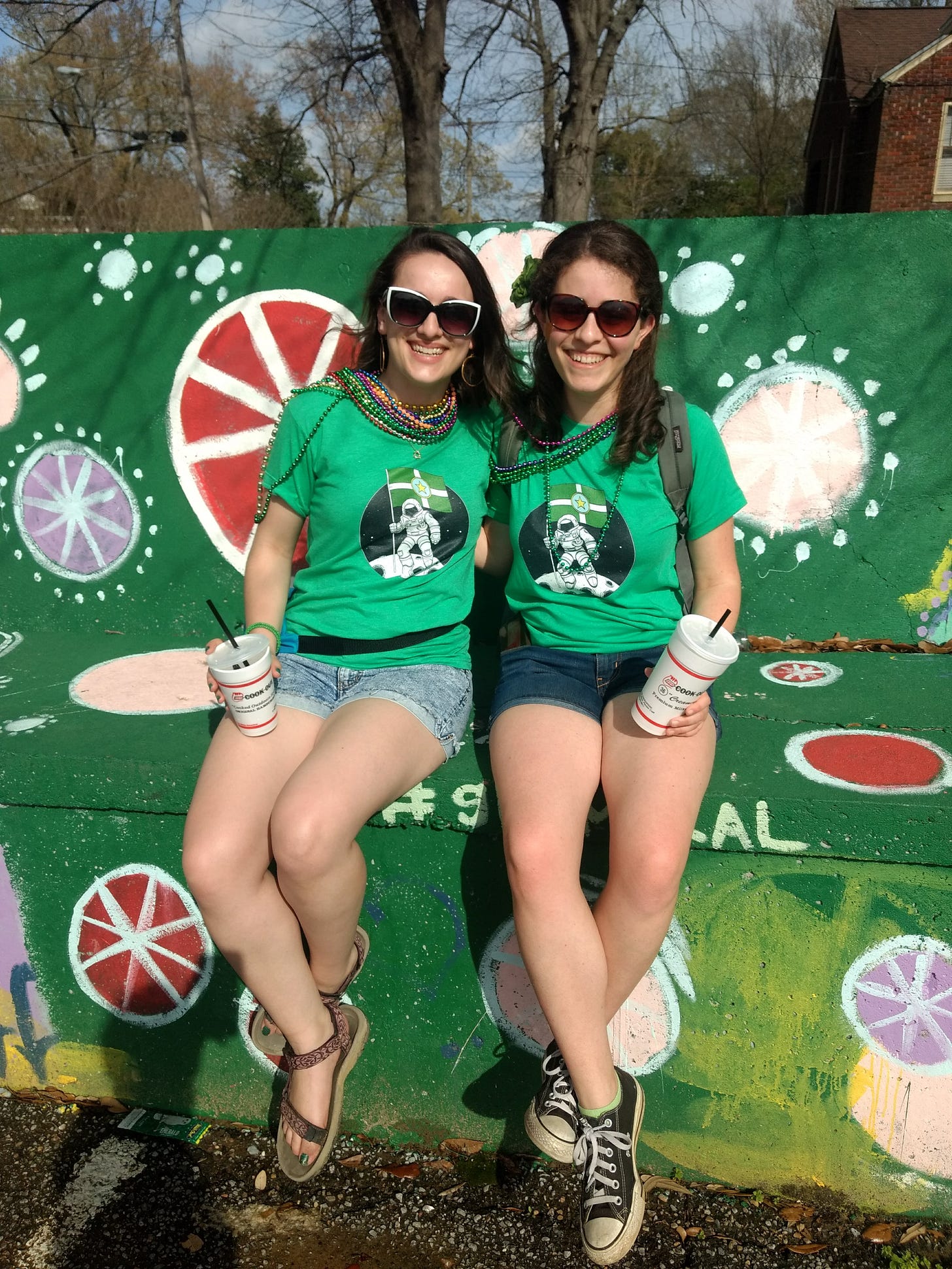
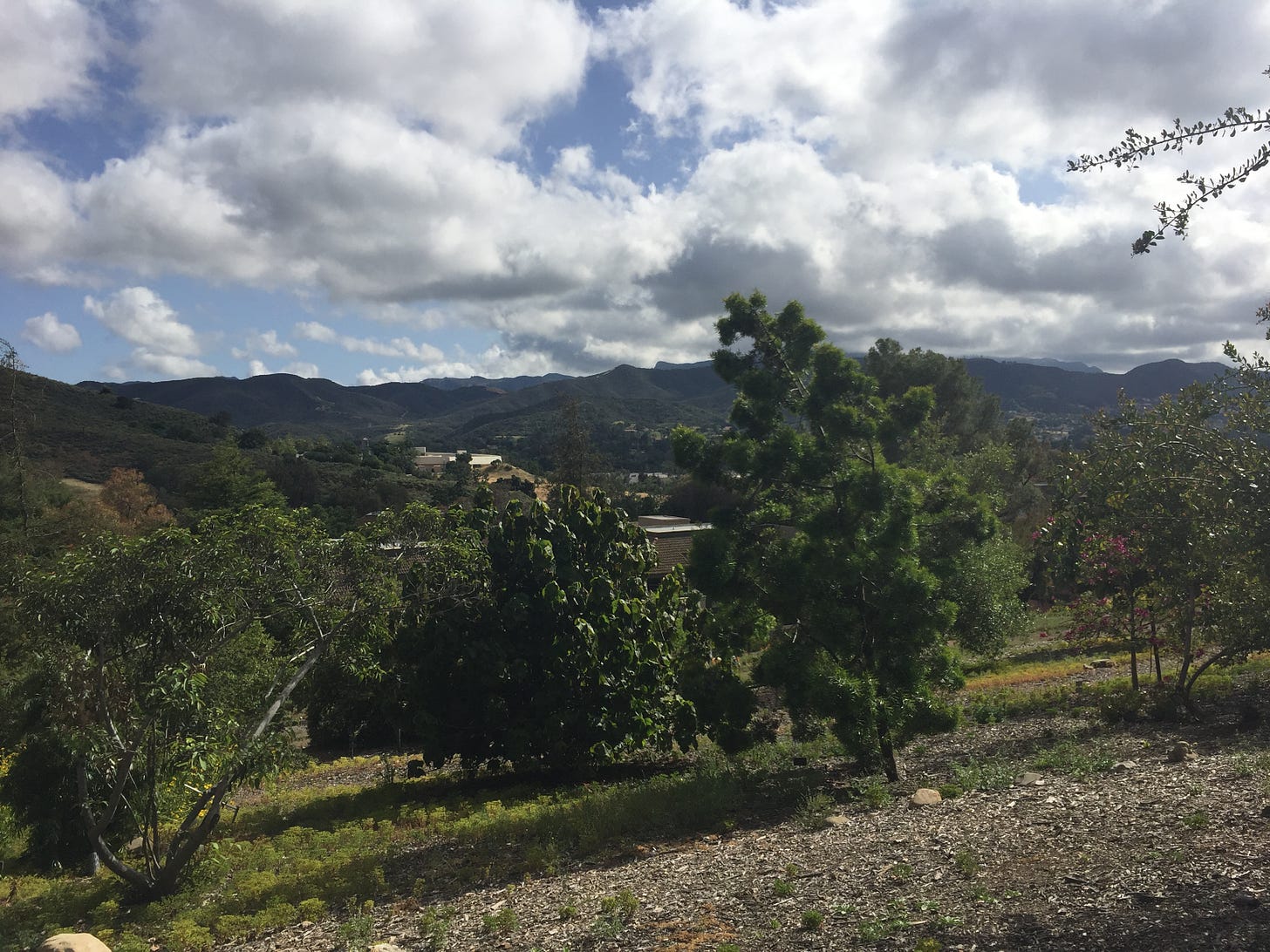
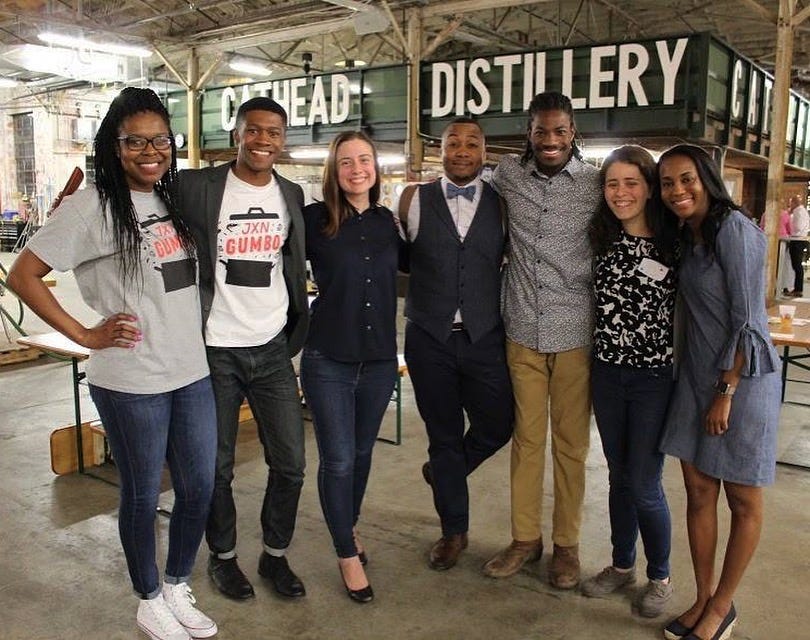
I enjoyed this interview. The sukkah photo looks so inviting!